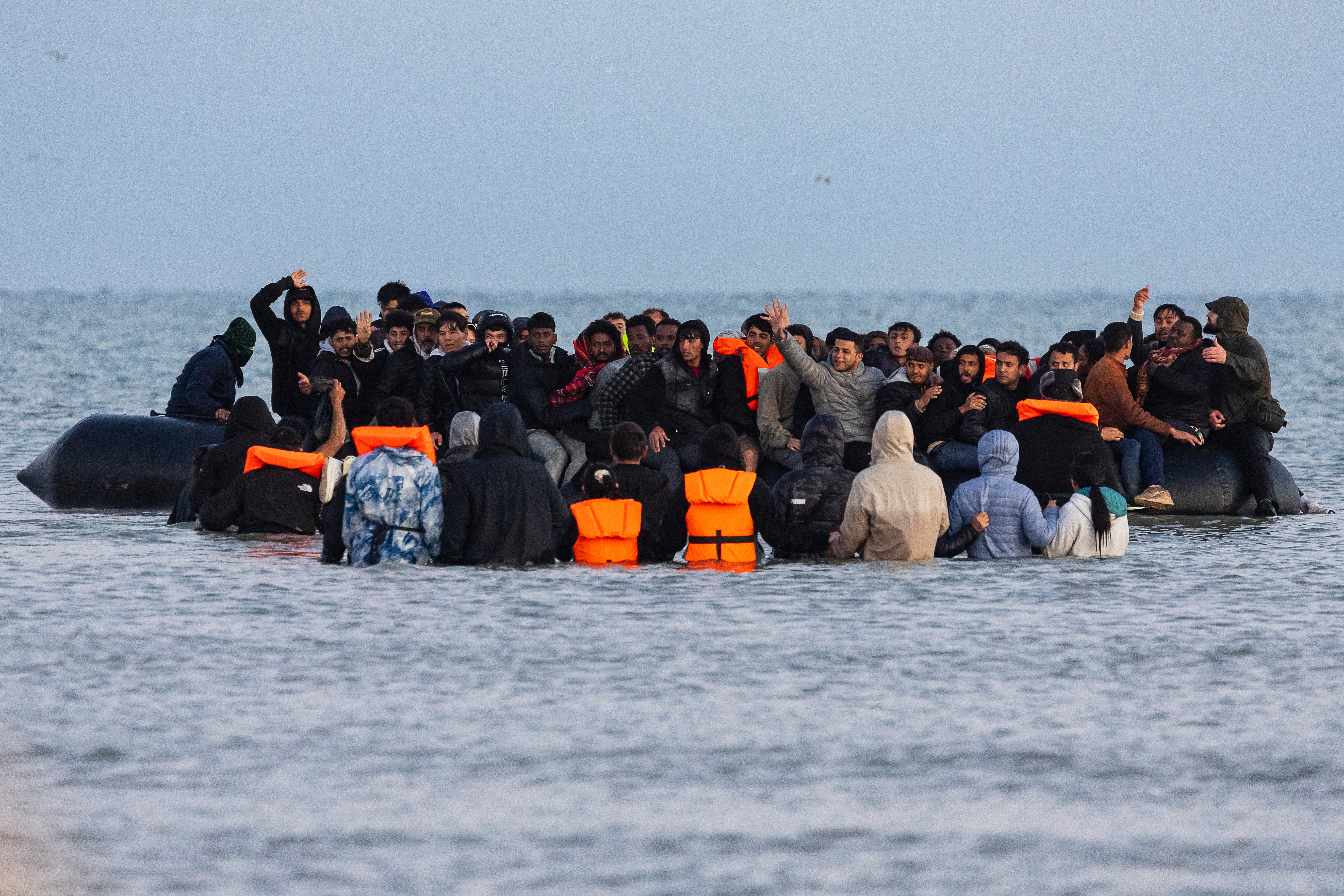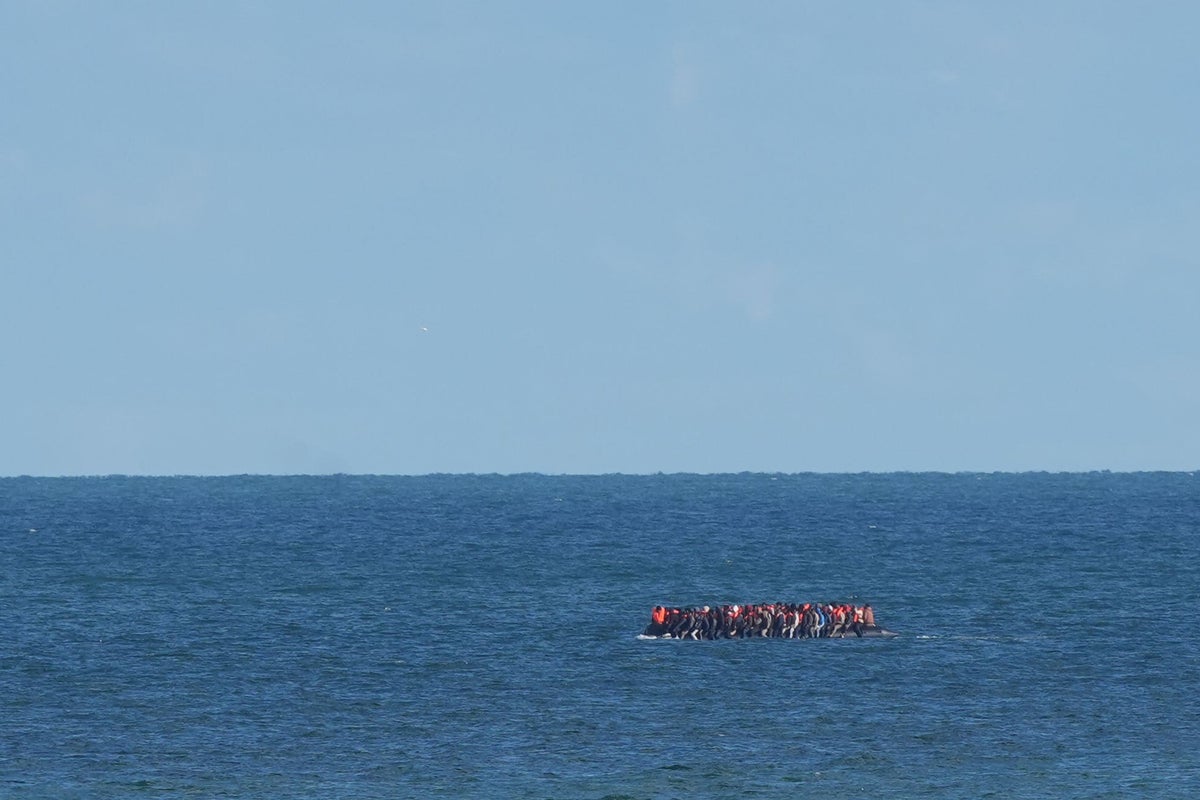The government has admitted that plans to move hundreds of refugees to military barracks are part of an effort to please the public but may not save taxpayers any money.
The Home Office has confirmed that Crabborough training camp in East Sussex and Cameron Barracks in Inverness will be used temporarily to house around 900 men as ministers try to find a way to end migrant hotels after huge controversy surrounding their use.
But Downing Street revealed that the scheme could cost more than housing migrants in hotels, just a day after MPs described the use of such hotels as “failed, untidy and expensive” at an influential committee.
This came as refugee charities and organizations described the plans as “brutal and costly” and accused the government of “replacing one failed approach with another.”
Small boat migrants will be housed in military facilities by the end of next month as Labor steps up efforts to move tens of thousands of migrants out of hotels. Officials are also working with the Defense Department to identify other decommissioned sites that could be used in the coming months.

The Prime Minister’s official spokesperson on Tuesday, in response to a question whether the costs of using military sites will be higher than using hotels, said: “Costs vary from site to site, but our priority is security and fairness.”
Asked later whether this meant ministers thought barracks were a better option, even if the costs were higher, the spokesman said it was “also a major matter of public confidence”. They added: “People are very clear that they do not want asylum seekers to be accommodated in hotels and neither is the government.”
On Monday, a parliamentary committee accused the Home Office of wasting billions of pounds on refugee resettlement as a result of incompetence.
But the committee also said that using military sites would likely cost more than hotels, and would pose safety issues and legal risks.
Committee chairwoman Karen Bradley warned ministers to “exercise caution” when considering large sites. “We’ve seen in the past that attacks on sites that are not fit for purpose cause more problems,” he added.

Before asylum seekers are moved to these new locations, the government must ensure that the accommodation is of adequate quality and that support services are in place.
Defense Secretary Luke Pollard also appeared to say it would cost more to move people to bases than to house them in hotels, but the government needed to “reflect public sentiment”, adding: “the public want to see those hotels closed”.
Refugee charities slammed the plans on Tuesday, with Jacob Burns of Doctors Without Borders saying it was a pointless and costly move that would do nothing to help those seeking safety in the UK.
Referring to the conditions at the former military base RAF Wethersfield, the Home Office’s largest asylum site, Mr Burns said: “Our medical teams have seen first-hand the devastating impact of this approach at RAF Wethersfield in Essex, where prison-like conditions, barbed wire and constant surveillance have caused widespread and serious psychological distress.”
Anwar Solomon, executive director of the Refugee Council, said the government was “trading one failed approach for another”.
Steve Smith, managing director of Care4Calais, added: “How much evidence does the government need that the camps are harmful to people’s health and well-being? We’ve had Napier, Penley and Wethersfield and hunger strikes, protests and suicide attempts have been commonplace in all of them.”

Labor has pledged to end the use of hotels by 2029, but the Prime Minister is reported to have privately told ministers he wants to end the practice within a year. Visiting Lancashire on Tuesday, Sir Keir Starmer said he wanted to see asylum seekers’ hotels closed “as soon as possible” and would “take this issue every day of the week”.
Mr Pollard told Sky News on Tuesday that ministers wanted to act “faster” on closing hotels and that the Ministry of Defense was “stepping up”.
He explained: “We are looking at the sites we have available where we can accommodate asylum seekers and enable the Home Office to close more hotels faster. It is right that we support our Home Office colleagues on this because I don’t think anyone wants asylum hotels to open.”
Both military sites were used to house Afghan families evacuated during the 2021 retreat from Kabul.
The Scottish site will reportedly house around 300 people, while the site in Sussex will house around 600.
Highland Council has raised concerns about “community cohesion” over the plans. In a joint statement from Raymond Bremner leader Bill LeBron and council opposition leader Alasdair Christie, the trio said: “Inverness is a relatively small community but its potential impact locally and across the wider Highlands has not been considered by the UK government”.
The Defense Ministry has previously been criticized for long-standing problems maintaining its homes for service personnel, some of which are also used to house Afghan refugees, with reported problems with dampness, mould, heating and hot water.
A 2024 parliamentary committee report concluded that the Ministry of Defense had underinvested in its properties for decades and that contractors were often slow to carry out repairs. The government has not yet said what type of accommodation the asylum seekers will be accommodated in Inverness and Wealden.

On Monday, Housing Secretary Steve Reid said the government was looking at “modular” buildings to ensure new sites could be ready in a short space of time, as part of a plan to end the use of hotels “entirely”.
Pop-up cabins are currently being used to increase capacity at the former RAF Wethersfield airbase in Essex.
Plans were mooted to install cabins at RAF Scampton in Lincolnshire, but the idea was shelved when Labor came to power.
As of June this year, around 32,000 asylum seekers were housed in hotels, compared to a peak of more than 56,000 in 2023, but 2,500 more than the same time last year.
A spokesman for the Home Office said: “We are outraged at the level of illegal immigration and asylum seeker hotels. This government will close all asylum hotels. Work is being done well and more suitable sites have been provided to reduce the pressure on communities and reduce the costs of asylum.”











